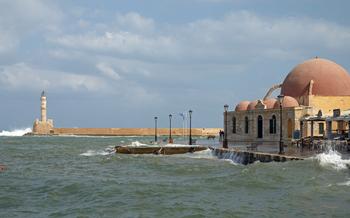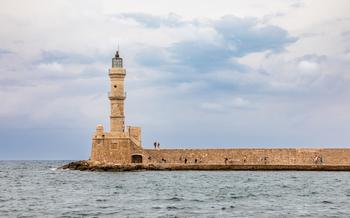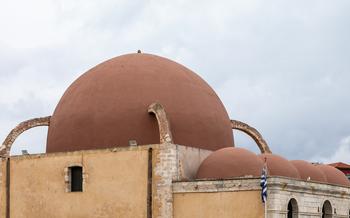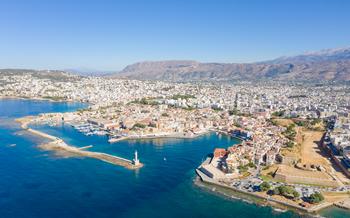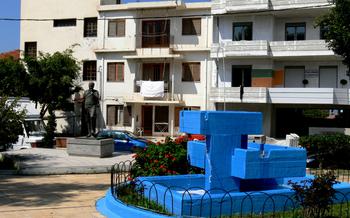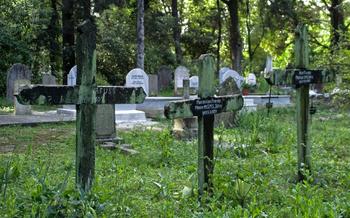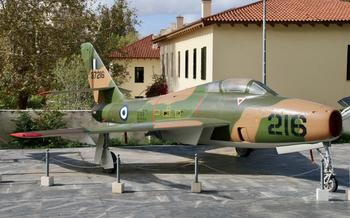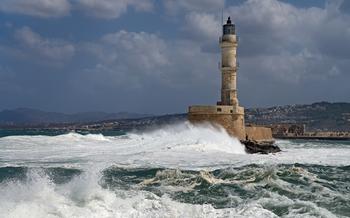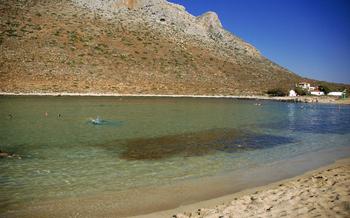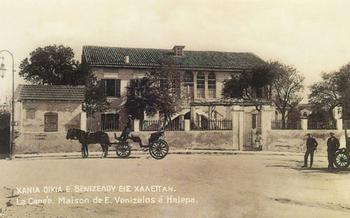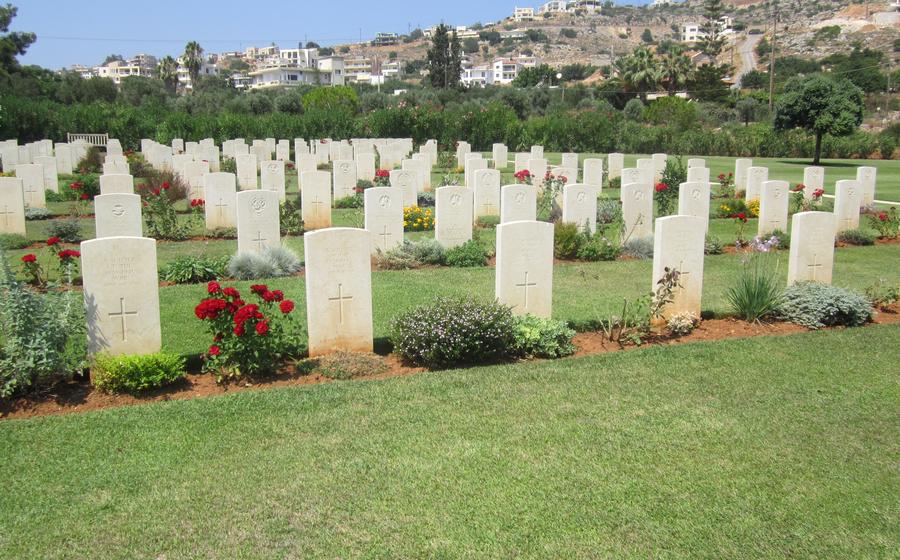
Souda Bay War Cemetery
- Historical Significance
- Location and Accessibility
- Layout and Design
- Headstones and Inscriptions
- Atmosphere and Ambiance
- Graves of Notable Figures
- Commemorative Events
- Educational Opportunities
- Respecting the Fallen
- Taking Photographs
- Planning Your Visit
- Nearby Points of Interest
- Accommodations and Dining
- Local Customs and Traditions
- Insider Tip:
Historical Significance
The Souda Bay War Cemetery, nestled along the picturesque coast of Chania, stands as a poignant testament to the sacrifices made by Commonwealth soldiers during World War II. Established in 1946, it serves as a final resting place for over 1,500 men and women who valiantly fought for freedom during the conflict. The cemetery is meticulously maintained by the Commonwealth War Graves Commission (CWGC), an organization dedicated to honoring and commemorating the fallen of the British Empire. This sacred ground not only pays tribute to those who lost their lives but also serves as a reminder of the devastating toll that war inflicts upon humanity.
Location and Accessibility
The Souda Bay War Cemetery is situated in the Akrotiri Peninsula, approximately 7 kilometers northeast of Chania town. It occupies a prominent position on a hilltop overlooking Souda Bay and the surrounding countryside. The cemetery is easily accessible by public transportation, with several bus routes stopping nearby. For those driving, clear road signs guide the way, and ample parking space is available on-site. The cemetery's well-maintained grounds and serene atmosphere make it a popular destination for visitors seeking a peaceful and contemplative experience.
Layout and Design
The Souda Bay War Cemetery is meticulously organized, reflecting the respect and honor accorded to the fallen soldiers. The cemetery's layout is symmetrical, with neatly arranged rows of headstones that create a sense of order and tranquility. Visitors can easily navigate the cemetery's pathways, which are lined with well-maintained gardens and colorful flowers, adding a touch of beauty to the solemn surroundings.
The cemetery is divided into distinct sections for different nationalities, each marked with a stone plaque bearing the country's name. This thoughtful design allows visitors to easily locate the graves of their compatriots and pay their respects. Notable architectural features include the Cross of Sacrifice, a poignant symbol of remembrance, and the Stone of Remembrance, which bears the names of those who have no known grave. These symbolic elements add to the overall significance and grandeur of the cemetery.
Headstones and Inscriptions
The Souda Bay War Cemetery features a variety of headstones and markers, each designed to commemorate the fallen soldiers with dignity and respect. The headstones are predominantly white, crafted from limestone, and meticulously maintained to ensure their pristine condition. The inscriptions etched upon these headstones provide a glimpse into the lives and sacrifices of the individuals they represent.
Names, ranks, and regimental affiliations are prominently displayed, allowing visitors to identify the fallen soldiers and learn about their military service. In addition to these basic details, many headstones bear heartfelt epitaphs, composed by family members or comrades, that express their love, sorrow, and admiration for the deceased. These inscriptions offer a glimpse into the personal stories behind the casualties, revealing their unique experiences and the profound impact their loss had on those who knew them.
Among the headstones, visitors may encounter poignant messages that capture the essence of the sacrifice made by the fallen soldiers. Phrases such as "He died for freedom" or "In proud and loving memory" convey the gratitude and respect felt by those who honor their memory. Other inscriptions express the hope for eternal peace and remembrance, serving as a reminder of the enduring legacy of the war dead.
The inscriptions at the Souda Bay War Cemetery not only serve as a means of identification and commemoration but also as a source of inspiration and reflection. They remind visitors of the immense cost of war and the importance of cherishing peace and reconciliation.
Atmosphere and Ambiance
As you step through the gates of the Souda Bay War Cemetery, a palpable sense of peace and serenity envelops you. The meticulously manicured lawns, adorned with vibrant blooms, create a serene and contemplative atmosphere. The gentle rustling of leaves and the distant sound of birdsong add to the tranquility of the surroundings.
Silence reigns supreme within the cemetery grounds. Visitors instinctively lower their voices, out of respect for the fallen and their families. This silence is not merely an absence of sound, but rather a profound and meaningful expression of reverence. It allows the mind to wander freely, reflecting on the sacrifices made by those who now rest here.
The emotional impact of visiting the Souda Bay War Cemetery is profound. As you stand amidst the rows of pristine headstones, each representing a life cut short, a sense of awe and gratitude washes over you. The overwhelming loss and sacrifice become tangible, evoking a deep sense of humility and respect.
Graves of Notable Figures
Among the thousands of fallen soldiers laid to rest at the Souda Bay War Cemetery, several notable figures stand out for their extraordinary contributions during World War II. Their graves serve as a poignant reminder of the sacrifices made by individuals who played a pivotal role in shaping the course of history.
Major General James Frederick Evetts
Major General James Frederick Evetts, a highly decorated British officer, is remembered for his courageous leadership during the Battle of Crete. As the commander of the 5th New Zealand Brigade, he fought valiantly against the overwhelming German forces, earning the admiration of his troops and the respect of his adversaries. His grave at the Souda Bay War Cemetery stands as a testament to his unwavering commitment to duty and his selfless devotion to his country.
Brigadier Reginald Miles
Brigadier Reginald Miles, another distinguished British officer, played a crucial role in the Allied defense of Crete. As the commander of the 1st Parachute Brigade, he led his troops in a daring raid against the German paratroopers, inflicting significant casualties and disrupting their operations. Despite being wounded in the battle, he continued to command his men, earning their undying loyalty and admiration. His grave at the Souda Bay War Cemetery serves as a reminder of his indomitable spirit and his unwavering dedication to his country.
Group Captain Douglas Bader
Group Captain Douglas Bader, a legendary fighter pilot of the Royal Air Force, is renowned for his extraordinary courage and resilience. Despite losing both his legs in a flying accident before the war, he overcame his disability to become one of the most successful fighter pilots of all time. He shot down 22 enemy aircraft during the Battle of Britain, emerging as a national hero. His grave at the Souda Bay War Cemetery is a tribute to his indomitable spirit, his unwavering determination, and his exceptional flying skills.
Commemorative Events
The Souda Bay War Cemetery serves as a poignant venue for regular commemorative ceremonies and services, honoring the sacrifices made by the fallen soldiers. These events hold immense significance in preserving the memory of those who fought and died during World War II.
Remembrance Day and ANZAC Day
Two of the most important commemorative events held at the cemetery are Remembrance Day and ANZAC Day. Remembrance Day, observed on November 11th, is a day of remembrance for all those who have lost their lives in conflicts. ANZAC Day, observed on April 25th, commemorates the anniversary of the first major military action fought by Australian and New Zealand forces during World War I.
During these commemorative events, solemn ceremonies are held at the cemetery, featuring readings, prayers, and the laying of wreaths. The events are attended by government officials, military personnel, veterans, and members of the public, who gather to pay their respects to the fallen.
Participating in Commemorative Events
If you happen to be in Chania during Remembrance Day or ANZAC Day, it is a truly moving experience to attend one of the commemorative ceremonies at the Souda Bay War Cemetery. To participate, simply arrive at the cemetery a few minutes before the scheduled start time. Participation is open to all, and you will be warmly welcomed.
These commemorative events offer a profound opportunity to honor the sacrifices of those who fought and died for our freedom. By attending, you become part of a global community that remembers and pays tribute to the fallen soldiers of World War II.
Educational Opportunities
The Souda Bay War Cemetery offers a wealth of educational opportunities for visitors interested in learning more about the history of World War II and the sacrifices made by the fallen soldiers. A variety of resources are available, including informative panels and brochures that provide an overview of the cemetery's history and significance.
Guided Tours and Historical Talks
Guided tours of the cemetery are available upon request, providing visitors with a deeper understanding of the site's history and the lives of the soldiers buried there. These tours are led by knowledgeable guides who share personal stories and insights, bringing the past to life. Additionally, historical talks and lectures are occasionally organized, offering visitors the chance to learn more about the broader context of the war and its impact on the region.
The Importance of Learning about the Past
The Souda Bay War Cemetery serves as a poignant reminder of the sacrifices made by soldiers during wartime and the importance of remembering their contributions. By visiting the cemetery and engaging with the educational resources available, visitors can gain a deeper understanding of the past and the impact of war on individuals, families, and nations. This knowledge helps us appreciate the value of peace and reconciliation and encourages us to work towards a future free from conflict.
Respecting the Fallen
As you wander through the sacred grounds of the Souda Bay War Cemetery, it is imperative to maintain an air of respect and solemnity, honoring the memory of those who made the ultimate sacrifice. Silence and contemplation are essential to preserving the tranquility of this hallowed space. Avoid loud conversations or disruptive behavior that may disturb the serenity of the cemetery.
When encountering individuals tending to the graves of their loved ones, offer a polite nod or a respectful greeting. Refrain from intruding upon their private moments of remembrance. If you wish to pay your respects to a specific soldier, a simple bow of the head or a gentle touch of the headstone will suffice.
Remember, these fallen heroes gave their lives in the pursuit of freedom and justice. It is our duty to honor their sacrifice by conducting ourselves with the utmost respect and decorum within the confines of this sacred memorial.
Taking Photographs
The Souda Bay War Cemetery is a solemn and sacred place, and as such, photography should be approached with respect and sensitivity. While visitors are welcome to take photographs to remember their visit, it is important to adhere to certain guidelines to ensure you do so in a respectful manner.
-
Be mindful of your surroundings: When taking photographs, be aware of your surroundings and ensure that you are not disturbing other visitors or the serenity of the cemetery. Avoid taking photos near or directly in front of graves, as this can be intrusive to those paying their respects.
-
Obtain permission: If you wish to photograph individuals visiting the cemetery, it is essential to obtain their permission first. This shows respect for their privacy and allows them to choose whether or not they want to be photographed.
-
Capture respectful images: When taking photographs, focus on capturing the overall atmosphere and beauty of the cemetery rather than specific graves or individuals. Avoid taking close-ups of headstones or inscriptions without permission, as this can be seen as disrespectful.
-
Respect the fallen: Remember that the Souda Bay War Cemetery is a memorial site honoring those who have fallen. While taking photographs, maintain a respectful demeanor and avoid any actions or poses that could be seen as disrespectful or inappropriate.
Planning Your Visit
To make the most of your visit to the Souda Bay War Cemetery, it's essential to plan your trip carefully. Consider the following tips:
-
Choose the Right Time of Day: The best time to visit the cemetery is early in the morning or late in the afternoon, when the light is soft and the temperatures are mild. Avoid visiting during the hottest hours of the day, especially in the summer.
-
Dress Appropriately: Remember that the cemetery is a sacred place of remembrance. Dress respectfully, avoiding shorts, tank tops, or revealing clothing.
-
Allow Sufficient Time: Set aside enough time to explore the cemetery at a leisurely pace. Allow at least an hour to wander through the grounds, read the inscriptions, and pay your respects to the fallen.
-
Be Mindful of Silence: The cemetery is a place for quiet contemplation and reflection. Be mindful of your voice and avoid talking loudly or disturbing the peace.
-
Take a Guided Tour: Consider joining a guided tour of the cemetery. Guided tours are often led by historians or experts who can provide valuable insights into the history and significance of the site.
Nearby Points of Interest
The Souda Bay War Cemetery is situated in a region brimming with historical and cultural landmarks. Visitors can seamlessly blend their pilgrimage to the cemetery with explorations of other captivating sites.
A short drive away lies the Ancient Aptera, a once-thriving city-state that boasts well-preserved ruins, including an impressive amphitheater. History buffs can delve deeper into the region's maritime past at the Maritime Museum of Crete, which showcases a captivating collection of artifacts and exhibits.
Nature enthusiasts will find solace in the verdant landscapes of the White Mountains National Park, with its awe-inspiring gorges, lush forests, and traditional villages. The park offers a sanctuary for hiking, trekking, and wildlife spotting.
For a taste of local life, venture into the vibrant city of Chania, where charming Venetian architecture, bustling markets, and delectable Cretan cuisine await. Explore the narrow alleys of the Old Town, marvel at the Venetian Harbor, and indulge in the flavors of traditional dishes at one of the many tavernas.
Combining a visit to the Souda Bay War Cemetery with explorations of these nearby attractions creates a comprehensive and enriching itinerary that unveils the region's rich tapestry of history, culture, and natural beauty.
Accommodations and Dining
Accommodations:
The area surrounding the Souda Bay War Cemetery offers a range of accommodation options, catering to different budgets and preferences. From charming guesthouses and boutique hotels to modern resorts, there's something for every traveler. For those seeking a unique experience, consider staying in a traditional Cretan village, where you can immerse yourself in the local culture and enjoy the tranquility of the countryside.
Dining:
After a reflective visit to the cemetery, indulge in the flavors of Cretan cuisine. The area boasts a selection of restaurants, tavernas, and cafes, serving both traditional Greek dishes and international fare. Don't miss the chance to sample local specialties such as fresh seafood, grilled meats, and delicious pastries. For a memorable dining experience, opt for a restaurant with outdoor seating, offering stunning views of the bay and the surrounding landscape.
Tips:
- Consider booking your accommodation in advance, especially during the peak tourist season, to avoid disappointment.
- Look for hotels or guesthouses that offer complimentary breakfast, allowing you to start your day with a hearty meal.
- Take advantage of the fresh and seasonal produce available locally by choosing restaurants that emphasize Cretan ingredients.
- Explore the local markets and shops to purchase souvenirs and specialty products, such as olive oil, honey, and traditional handicrafts.
Local Customs and Traditions
When visiting the Souda Bay War Cemetery, it's important to be mindful of local customs and traditions to ensure a respectful and immersive experience. Here are some tips to keep in mind:
-
Dress appropriately: While there is no strict dress code, modest and respectful attire is recommended. Avoid wearing shorts, tank tops, or revealing clothing.
-
Be respectful of silence: The cemetery is a place of peace and reflection. Maintain a respectful silence and avoid loud conversations or disruptive behavior.
-
Photography etiquette: While photography is permitted, it's important to be mindful of others and obtain permission before photographing individuals or groups.
-
Respect local customs: When interacting with locals, be polite and respectful. Greet people with a warm "kalimera" (good morning) or "kalispera" (good evening), and remember to use "parakalo" (please) and "efharisto" (thank you).
-
Learn a few Greek phrases: Making an effort to learn a few basic Greek phrases, such as "hello," "thank you," and "goodbye," can go a long way in showing respect and appreciation for the local culture.
By observing local customs and traditions, you can contribute to the preservation of the cemetery's sacred atmosphere and ensure a meaningful and respectful visit.
Insider Tip:
As you wander through the rows of headstones, take a moment to read the inscriptions and reflect on the lives of the fallen soldiers. Each headstone tells a unique story of courage, sacrifice, and remembrance. One particularly poignant inscription that caught my attention was that of a young soldier who had written a letter to his family just days before his death. In his letter, he expressed his love and gratitude for his parents and siblings, and his determination to fight for his country. His words, etched in stone, serve as a powerful reminder of the personal sacrifices made by so many during the war.
When visiting the Souda Bay War Cemetery, it's important to remember that you are walking on hallowed ground. Be respectful of the fallen soldiers and their families by maintaining silence and solemnity. Take the time to read the inscriptions, learn about the lives of those who are buried here, and pay your respects to the brave men and women who gave their lives for their country.
